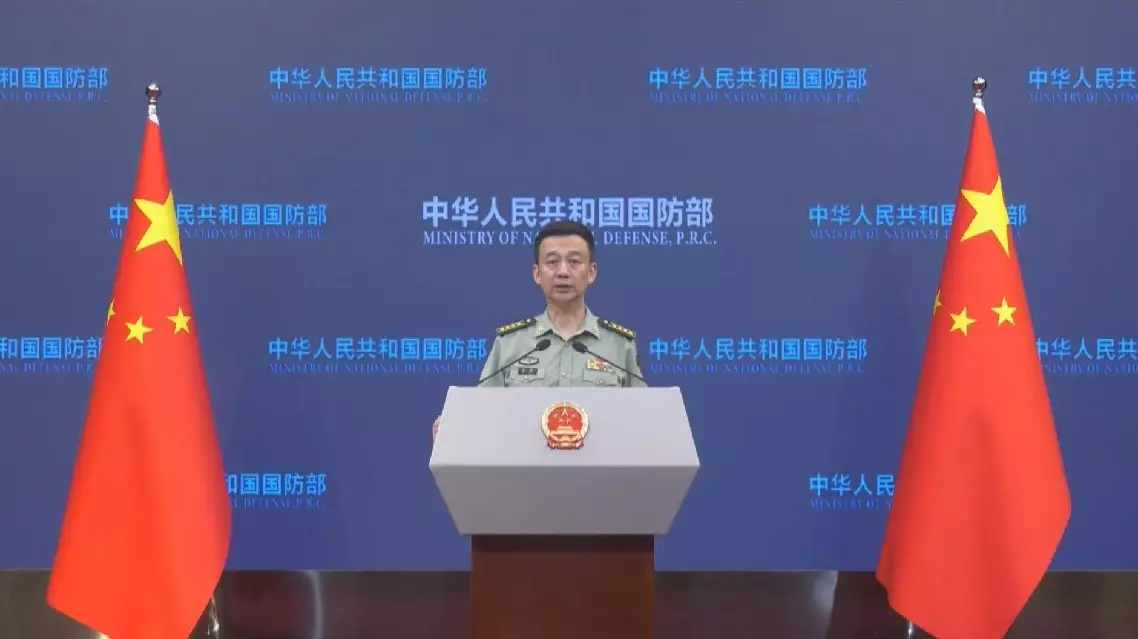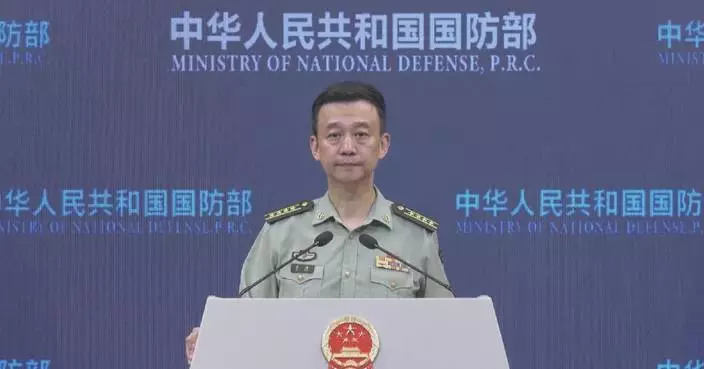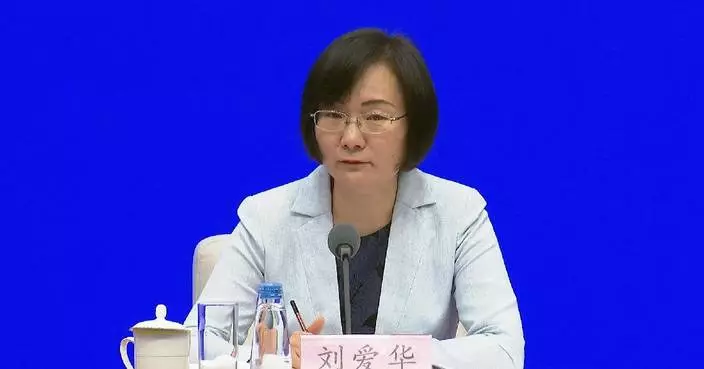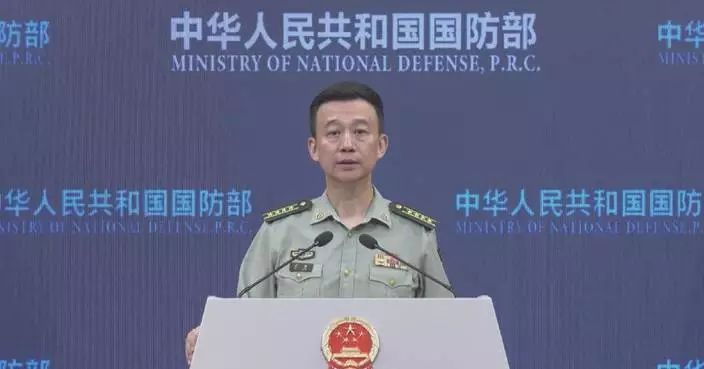Chinese President Xi Jinping's meeting with visiting Assistant to the U.S. President for National Security Affairs (National Security Advisor) Jake Sullivan underscored a critical juncture for China-U.S. relations, and Xi's call to develop a right strategic perception between the two countries will help find a right way for them to coexist in peace and achieve common development, said a China Media Group (CMG) commentary published on Thursday. On Thursday, Xi met with Sullivan at the Great Hall of the People in Beijing.
He emphasized that when China and the United States, two major countries, engage with each other, the first issue is to develop a right strategic perception, and they need to first and foremost find a good answer to the overarching question: Are China and the United States rivals or partners?
Xi expressed the hope that the United States will work in the same direction with China and jointly find a right way for the two countries with different civilizations, systems and paths to coexist in peace and achieve common development on this planet.
Sullivan reiterated that the United States does not seek a new Cold War, it does not seek to change China's system, the revitalization of U.S. alliances is not against China, the United States does not support "Taiwan independence", and it does not seek conflict with China.
The one-China policy of the United States has not changed, and it has no intention to use Taiwan as a tool to contain China, Sullivan added.
The United States hopes to maintain strategic communication with China and find a way for the two countries to coexist in peace and for U.S.-China relations to develop in a sustainable way, according to Sullivan.
Sullivan's visit to China marks a new round of strategic communication between the two countries. This is another important step in implementing the consensus reached by the two heads of state in San Francisco.
According to the Chinese side, the discussions were "candid, substantive, and constructive," and they also covered the upcoming interactions between the two leaders.
The White House has also given a relatively positive assessment of this high-level U.S.-China engagement, indicating both sides' willingness to manage differences and maintain stable relations.
Analysts suggest that China expressed a clear position before Sullivan's visit, aiming to remind the U.S. to respect China's core interests, not let domestic political agendas damage U.S.-China relations and to ensure the relationship develops in a stable and predictable direction.
In recent years, whether through phone calls or face-to-face meetings between the Chinese and U.S. heads of state, China has consistently conveyed a key message: The world is big enough to accommodate both countries, one country's success is an opportunity for the other and China hopes to develop a good relationship with the U.S.
To this end, President Xi proposed that China and the U.S. should adhere to the three principles in their interactions: mutual respect, peaceful coexistence and win-win cooperation. He also called for strengthening the five pillars of China-U.S. relations, namely, jointly developing a right perception, jointly managing disagreements effectively, jointly advancing mutually beneficial cooperation, jointly shouldering responsibilities as major countries, and jointly promoting people-to-people exchanges.
This reflects China's positive intention and practical "roadmap" to find the correct way to engage with U.S.
In this round of strategic communication, China restated a series of positions and proposals on how to correctly handle China-U.S. relations. Key points include: ensuring the right direction of China-U.S. relations under the guidance and steer of the two heads of state; avoiding conflict and confrontation by adhering to the three joint communiques; ensuring smooth interactions through equal treatment; sustaining China-U.S. relations by consolidating public support; and achieving peaceful coexistence through correct strategic understanding.
These five key points demonstrate China's broader vision and rational thinking in developing China-U.S. relations.
To establish correct understanding, for example, China has repeatedly emphasized the importance of this issue, stating that strategic perception is the first point that must be properly addressed in U.S.-China relations.
China's consistent stance is to guide the U.S. out of a zero-sum, narrow competitive view and to truly understand that China's development goals are to improve the lives of its own people, not to replace the U.S.
In the meantime, no external force can deprive the Chinese people of their right to development.
Furthermore, China emphasized the importance of the three China-U.S. joint communiques.
This year marks the 45th anniversary of diplomatic relations between the two countries.
Some people in the U.S. need to revisit history and respect the political foundation of the bilateral relationship, as well as China's sovereignty, territorial integrity, political system, and development path.
The real "guardrail" for China-U.S. relations is, and has always been the three joint communiques.
Sullivan agreed on treating each other equally and the peaceful coexistence of the U.S. and China on this planet.
These statements are positive, but the key is for the U.S. to implement these promises and avoid the scourge of saying one thing and doing another.
Such concerns have practical basis: Since the China-U.S. summit in San Francisco, the U.S. has sought to strengthen communication with China though, it has also continued to contain China, even intensifying its measures.
Recent examples include inviting officials from China's Taiwan region to the U.S., imposing additional tariffs, export controls, and investment reviews on China; taking sides in the South China Sea dispute between China and the Philippines; shifting the blame of escalation of the Russia-Ukraine conflict to China; and imposing long-arm jurisdiction sanctions on Chinese companies and individuals.
These actions have seriously infringed upon China's legitimate rights and even core interests. If the U.S. does not change its strategy of suppressing China, the China-U.S. ties will not improve.
As one of the world's most important bilateral relationships, how China and the U.S. interact not only affects the interests of both countries but also significantly shapes global development.
Regardless of changes in U.S. domestic politics, both China and the U.S. have the responsibility to eliminate disturbance, find a correct way to engage, and turn the San Francisco vision into reality.
As President Xi Jinping points out, as two major countries, China and the U.S. should be responsible to history, their peoples, and the world, and become stabilizing forces for global peace and drivers of common development.
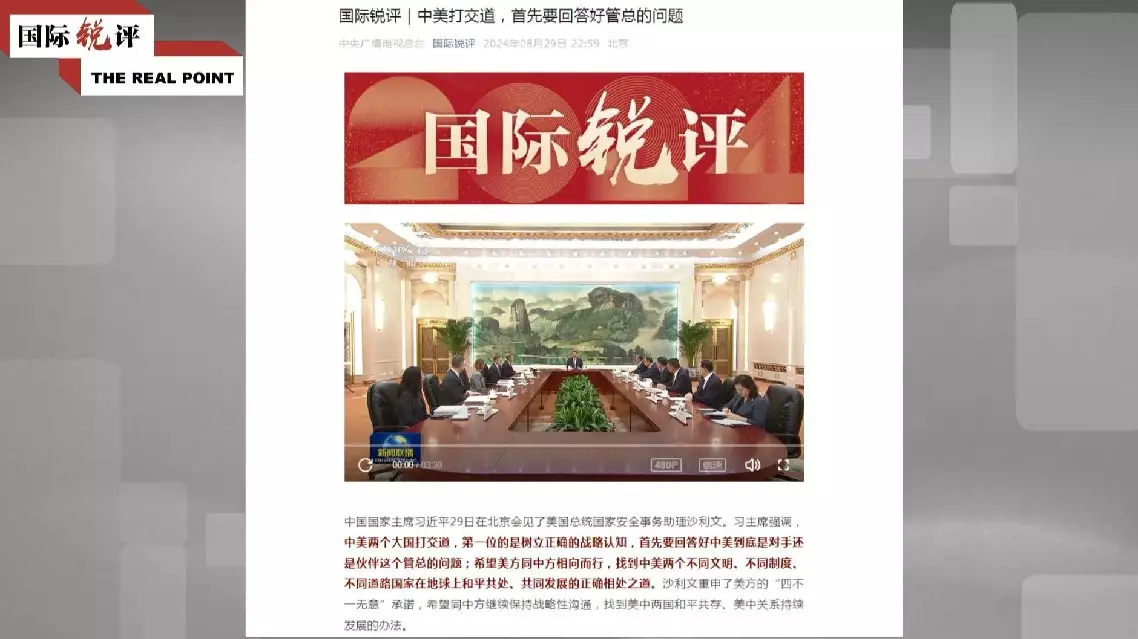
Xi-Sullivan meeting highlights need for strategic clarity in US-China relations: commentary


